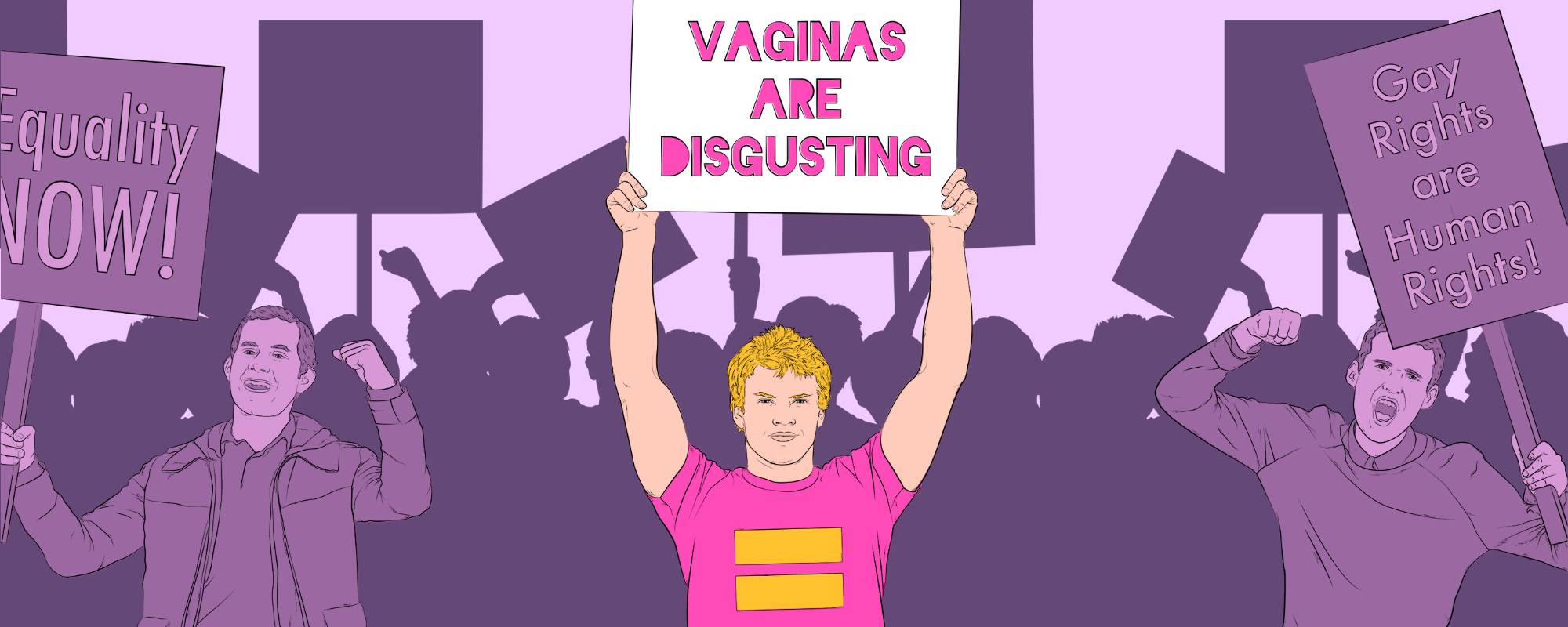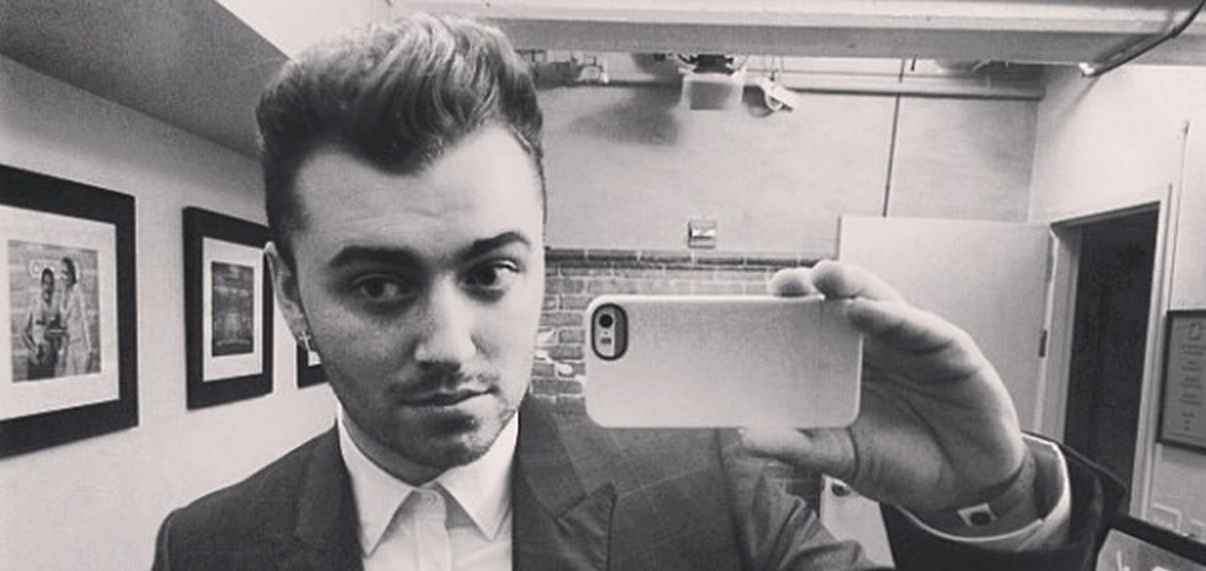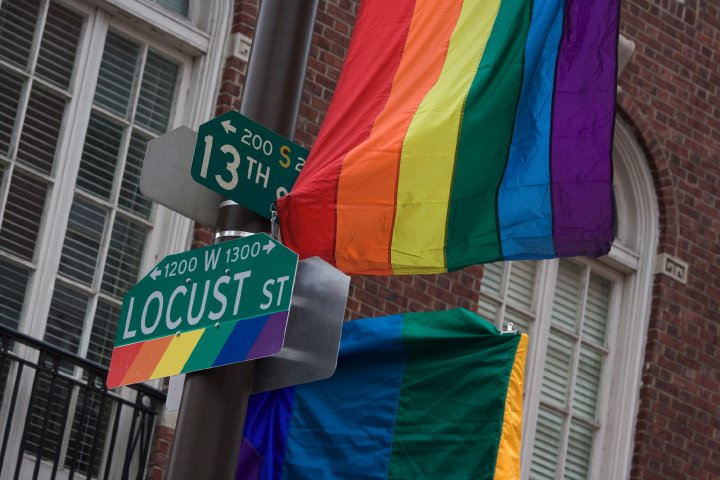When we think about the unrealistic expectations set for women, we often overlook the actions of gay men. After all, they’re not sexually attracted to women, so that means they most likely aren’t going to judge us based on our attractiveness. Likewise, they’re used to being in a position of minority, so they’re less likely to hold us into our little box. Right?
Well, not necessarily. According to Séan Faye of Broadly, gay men might even be more sexist and misogynistic than their straight male counterparts – and it’s almost worse, because it’s not coming from a desire to claim the women involved, but rather, to be more powerful than them.
Think about it. When’s the last time you were inappropriately groped by a gay man, whether as a joke or out of curiosity? Many gay men forget the general rules of personal boundaries, and may grab a woman’s breast or bum without even asking first. It’s generally regarded as not sexual in nature, so it isn’t seen as a problem.
But that doesn’t make it okay.
In some ways, this may be a retaliation. Lesbians often subscribe to feminism, so it’s assumed that we would embody the “femi-nazi” stereotype of the man-haters. This would, naturally, upset the balance in the gay community – unless, of course, the gay men retaliated by being woman-haters, too. But it’s important to realize that not all women believe in female superiority – and in fact, most are just looking for equality.
But gay men aren’t the only ones guilty of this misogyny, either – I’ve seen in in my lesbian friends as well. We make sexist assumptions about each other all the time, and it’s really not fair. I’ve even caught myself doing it before – reposting pictures that fall outside of what I find attractive, with captions that would seriously hurt if the person in the picture were to read them.
Is it right? Definitely not.
Is it something we all need to work on? Yeah, I think so.
Is it something that’s going to happen any time soon? Well, probably not.
The truth is, any big movement is going to be hard to coordinate, and I don’t think the world is really ready to accept true gender equality. Maybe we never will be – being part of a patriarchal society for so long has most of us pretty set in our ways. Even those of us who consider ourselves feminists are subject to occasional bouts of woman-hating-ness, whether we outwardly vocalize them or not.
What can you do to fix it in your own local community?
If we’re being completely honest here, there’s not a lot that can be done to fix it on a wide scale – each person would have to change their own behavior, and in time the “old ways” of doing things will die out. Maybe I’m a pessimist, but I don’t see it happening in my lifetime.
On a smaller scale, though, we can actively work to suppress our anti-feminist thoughts, by stopping to think before we say things that could be taken a negative way. Sure, this won’t actually fix the problem, but it’ll help you to acknowledge the “bad” behavior and put an end to it.
Some feminists would prefer to think that you can dismantle the patriarchy simply by defying the traditional gender roles… But I don’t think that’s necessary, nor is it the only way to do things. If you truly like the things that are traditionally attributed to your gender, perhaps the most feminist thing you could do is to be unapologetically yourself – even if it goes along with what society expects of you. Isn’t it more important to be real than to be novel?
The only way we’re going to fix this is if we all stand up against the expectations – all expectations. Don’t expect anything from anyone based on things you aren’t sure of. Stereotypes aren’t always right, but even if they are, that doesn’t mean that the person is necessarily sacrificing themselves, their dignity, or their self-respect.
In short, the best way to beat misogyny is to stop caring what everyone else thinks about you- and stop assuming everyone cares what you think, too.



